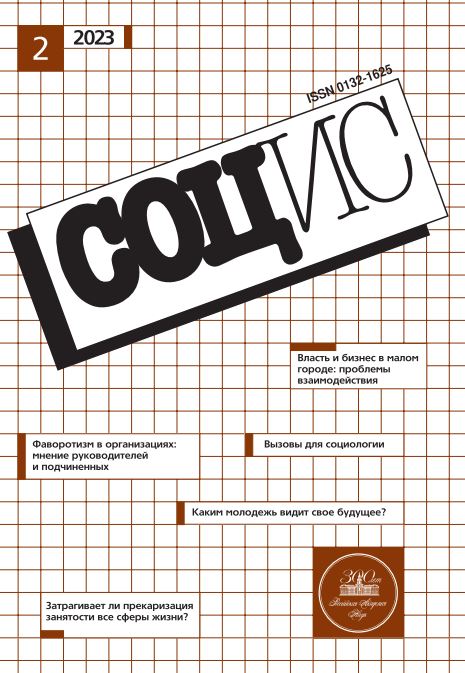Financial Culture Of Student Youth As A Predictor Of Economic Behavior
- Authors: Tyurikov A.G.1, Gryzenkova J.V.1, Kunizheva D.A.1
-
Affiliations:
- Financial University under the Government of the Russian Federation
- Issue: No 2 (2023)
- Pages: 143-149
- Section: Articles
- URL: https://clinpractice.ru/0132-1625/article/view/661556
- DOI: https://doi.org/10.31857/S013216250023451-9
- ID: 661556
Cite item
Abstract
The study of the financial and economic culture of the population is designed to help explain and predict its behavior, the ability to take advantage and avoid risks. The article presents the results of a study of the financial and economic culture of students. The theoretical premises were the approach to culture as a socially interactive process consisting of "shared meanings" and "shared practices", and the methodological framework was the concept of the institutional matrix and the phenomenon of financial subjectivity. The socio-economic block of issues considered in the article includes indicators characterizing risks of a macroeconomic nature and in interaction with financial institutions. Macroeconomic risks seem to many respondents to be very likely, which determines the orientation towards using such methods of saving and multiplying funds as investments in real estate, cash foreign currency and bank deposit.
Keywords
Full Text
About the authors
Alexander G. Tyurikov
Financial University under the Government of the Russian Federation
Email: socis@isras.ru
Russian Federation
Julia V. Gryzenkova
Financial University under the Government of the Russian Federation
Email: socis@isras.ru
Russian Federation
Diana A. Kunizheva
Financial University under the Government of the Russian Federation
Author for correspondence.
Email: socis@isras.ru
Russian Federation
References
- Brovchak S. V., Selivanova M. A., Sochneva E. N. (2019). Issues of increase in financial literacy of students of higher educational institutions of financial and economic orientation. Perspektivy nauki i obrazovania [Perspectives of Science and Education]. No. 41(5): 130–146. doi: 10.32744/pse.2019.5.10. (In Russ.)
- Jelly H. (2021) A Measurement and Interpretation of Money Management Understandings of Twelfth Grade Students. URL: https://www.worldcat.org/title/measurement-and-interpretation-of-money-management-understandings-of-twelfth-grade-students/oclc/3785264 (accessed 03.10.2021).
- Tambovtsev V.L. (2018) Innovations and culture: the importance of the methodology of analysis. Voprosy ekonomiki [Questions of Economics]. No. 9: 70–94. (In Russ.)
- Tsyganov A.A. (2022) Pension expectations and strategies of Russian residents. Sotsiologicheskie issledovaniya [Sociological Studies]. No. 6: 36–42. doi: 10.31857/S013216250017479-9. (In Russ.)
- Tyurikov A.G., Razov P.V., Markov D.I. (2021) Readiness of Russian students to form individual pension savings. Narodonaselenie [Population]. Vol. 24. No. 3: 62–75. doi: 10.19181/population.2021.24.3.6. (In Russ.)
- Vodenko K.V. (2020) Historical memory and economic culture: the specifics of the relationship and mutual influence. In: Sociology and Society: Traditions and innovations in the social development of regions. Coll. of reports of the 6th All-Russian Sociological Congress (Tyumen, October 14-16, 2020). Eds. V.A. Mansurov; E.Yu. Ivanova. Moscow: RSS; FNISC RAN. doi: 10.19181/kongress.2020. S. 5583–5588. (In Russ.)
Supplementary files










